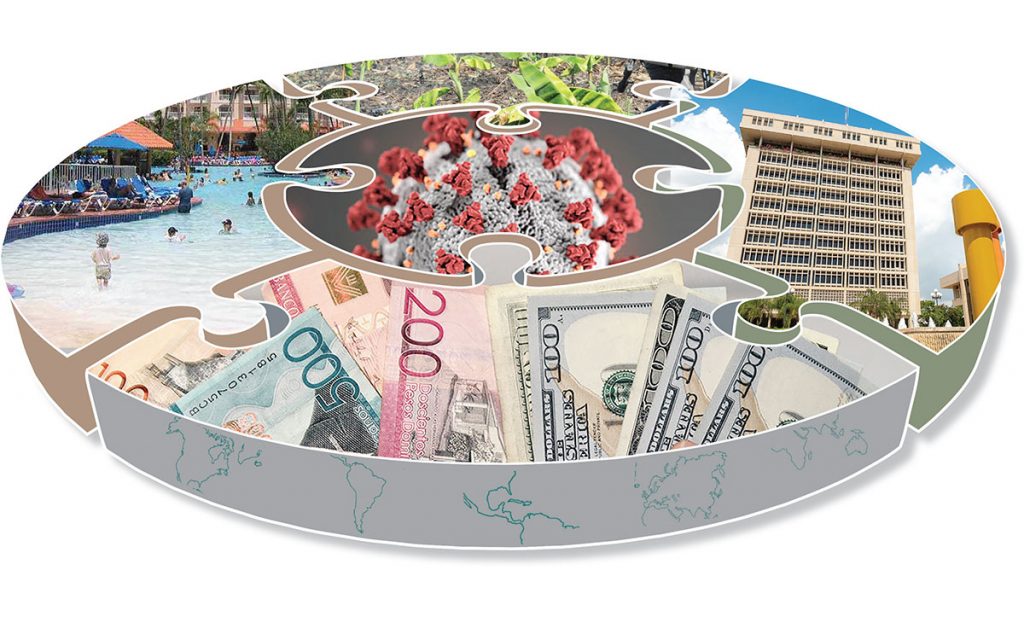
Images of closed hotels are circulating on social media in the Dominican Republic. A large number of hotels in the Punta Cana area have closed or are about to close, including the Riu, Palladium, Nickelodeon, Princess, Bahia Princess, Excellence, among others. Arecoa online news service estimates at more than US$139 million the losses in March. The estimate comes from the average spending of US$89 per passenger on cruise ships and US$136 for non-resident tourists who stay an average of eight nights in the country, according to the Central Bank tourism report.
The country is now closed to European flights. Efforts are underway to arrange for chartered flights to send European tourists back to their destinations after the government canceled this week all flights from Europe. An estimated 10,000 tourists have had to be rebooked after their return flights were canceled. Ernesto Veloz, president of the Association of Hotels and Tourism Projects in the East, said facilities are being offered until 20 March for the return of the tourists. He said the chartered flights will need to come with double crew because the crews will not be allowed to disembark in the country.
Several hotel employees have been ordered to go on vacation, others to just stay at home, some with pay, others are just fired. The situation is bleak for the employees.
As reported in El Dia, there are more than 200 flights from Europe and the Americas have already happened. The US shut down flights from Europe, another major source of tourists to the country.
The Dominican Republic had never suffered such a lockdown. In worse scenario years, after a hurricane, only part of the country had been affected. The present scenario is affecting 100% of the hotel installations that now may not even count on domestic tourism. Dominicans are being told to stay home to quell the spread of the virus.
There is bad news for the local farm sector. Dominican farms produce for the local markets, but it is estimated hotels purchase around US$800 million in produce every year, or about 25% of the total production. The Agribusiness Council (JAD) forecasts there will be a surplus that will lead to all-time price lows but also major losses for producers.
The Santiago business community has proposed several measures. Economist Miguel Collado Di Franco of the Regional Center for Sustainable Economic Strategies (CREES) calls for the government to consider tax incentives to reduce the economic impact on productive sectors and stimulate the economy to bounce back once the virus is under control.
The president of the National Confederation of Farm Producers (Confenagro) Eric Rivero urged the government ban all farm produce imports so that local producers can sell their unexpected surplus, as reported in Diario Libre.
The cancelation of sports events around the world is also having an effect on sports betting shops that pollute the Dominican Republic. As reported in Diario Libre, thousands of these could go out of business. The president of the National Association of Sports Betting Shops, Ricardo Nadal said that in 2019 the shops transacted RD$16 billion in bets, with 70% bet on MLB games.
Thousands of employees are being allowed to work from home. Others are instructed to work part-time to reduce the number of people at a single time in the workplace. Nevertheless, the gradual imposing of a lockdown will leave millions without work and income. Millions in the Dominican Republic depend on the informal sector. The grim reality is that 58% of the Dominican population is self-employed or works in the informal sector, according to the Central Bank employment survey. The grim reality is if they don’t work, they don’t generate income and don’t get paid.
Read more in Spanish:
El Nuevo Diario
Arecoa
El Dia
Diario Libre
Diario Libre
18 March 2020

